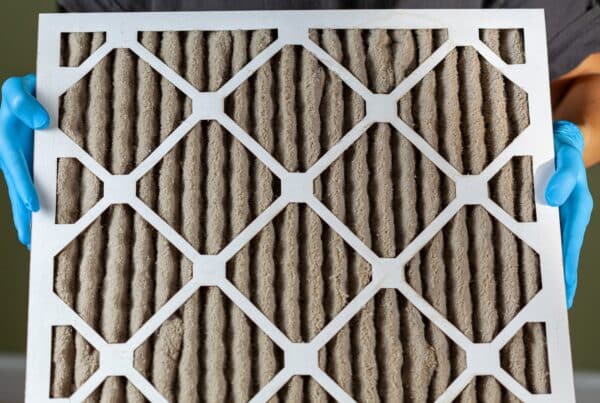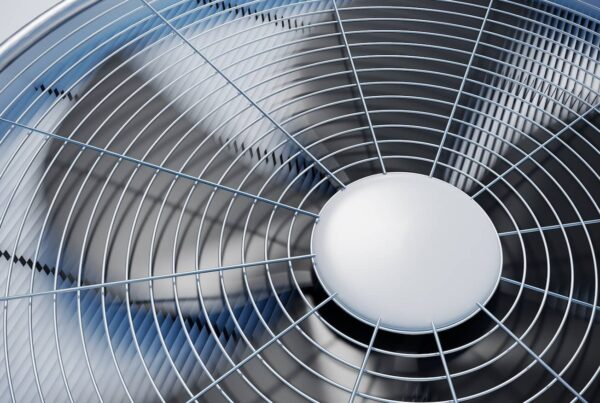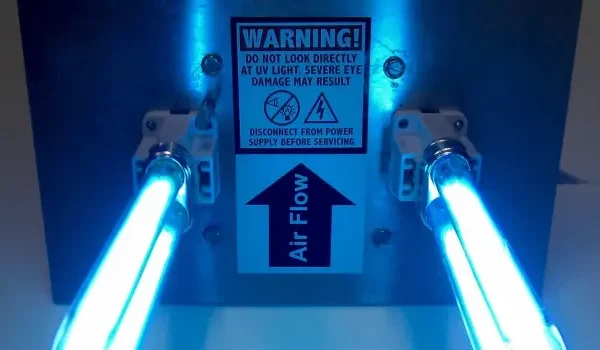
Regardless of which season’s temperatures you’re enduring, or where you’re located, a well-functioning air conditioner is more of a necessity than a luxury. You might not think about what fuels your climate controls until a high energy bill arrives or you’re faced with a decision about which system to install. So, do air conditioners run on gas? Or is electricity the standard?
In this article, we’ll look into the heart of the most common AC systems to uncover the energy source that keeps them humming. Whether you’re installing a new unit or curious about your current setup, understanding if your air conditioner uses gas or relies on electricity is invaluable. Get ready to arm yourself with the knowledge to optimize your home’s comfort and your energy consumption!
The AC Basics
An air conditioner’s primary function is transferring heat from inside your home to the outside, creating a cool, comfortable indoor environment. This involves mechanical and chemical processes using several key components, including a compressor, condenser, expansion valve, and evaporator.
These components work together, circulating refrigerant that absorbs and releases heat while shifting between gas and liquid states. In standard residential air conditioners, electricity powers the compressor, initiating the refrigerant’s cycle. The refrigerant draws heat from indoor air and expels it outdoors as it circulates, repeating the process to maintain the desired temperature set on your thermostat.
Air conditioners significantly impact your home’s energy use, so understanding how they function is crucial for making informed decisions about maintenance, upgrades, and energy efficiency.

Types of Air Conditioners and What Fuels Them
Air conditioners come in various shapes and sizes, each with its unique method of cooling a space. However, when it comes to what powers these machines, there are two primary options: electricity and, less commonly, gas. Let’s explore the different types of air conditioners and the fuel sources they depend on.
Central Air Conditioning Systems
The most prevalent type in residential homes is the central air conditioning system. These systems use electricity almost exclusively. They work by pushing cool air through a network of ducts and vents, reaching every corner of your home.
The central unit, which houses the compressor, condenser, and evaporator, is typically located outside and connected to your home’s electrical supply.
Window and Portable Units
Window units and portable air conditioners are the go-to solutions for cooling individual rooms. These standalone units are electrically powered and can be plugged into standard household outlets.
Portable units have the added advantage of mobility, allowing you to move the cooling effect to where it’s needed most.
Ductless Mini-Split Systems
Ductless mini-splits offer a middle ground between central systems and window units. These electric systems consist of an outdoor compressor unit and one or more indoor air handling units, connected by a small conduit. They’re ideal for homes without ductwork or for room-specific temperature control.
Gas-Powered Air Conditioners
While not as common, gas-powered air conditioners do exist. Known as gas absorption air conditioners, these units use natural gas to operate the absorption refrigeration cycle. They can be a viable option in areas where electricity costs are high or where electricity is not readily available.
Heat Pumps
A special mention goes to heat pumps, which work like reversible air conditioners, providing cooling in the summer and heating in the winter. While most heat pumps are powered by electricity, there are gas-fired heat pumps, using natural gas as their energy source.
Comparing AC Options: Gas vs. Electric
When it comes time to select an air conditioning system for your home, the choice between gas and electric models is more than just a matter of what’s available—it’s a decision that affects your long-term comfort, costs, and carbon footprint. Let’s compare the two to help you determine which might be the right choice for your cooling needs.
Efficiency and Cost
Electric air conditioners are widely available and come in a range of efficiencies. This is measured by their Seasonal Energy Efficiency Ratio (SEER) rating. A higher SEER rating indicates a more efficient unit that costs less to operate over time, albeit with potentially higher upfront costs. The immediate advantage of electric AC units is their ubiquitous availability and the breadth of options that cater to various budgets and efficiency desires.
Gas air conditioners, like gas absorption models, work well where gas is cheaper than electricity. They’re efficient but less common and often come with higher installation costs. This is due to their specialized design and the need for a gas line.
Environmental Considerations
The environmental impact of gas vs. electric air conditioners depends largely on the source of the electricity or gas. Natural gas is a fossil fuel, and while gas-powered AC units can be efficient, they still rely on a non-renewable resource and emit greenhouse gases.
Electric air conditioners draw power from the grid, which may come from a variety of sources, including renewable energy. The greener the electricity source, the lower the environmental impact. If your electricity comes from renewable sources like wind, solar, or hydroelectric power, an electric air conditioner could be the more eco-friendly option.
Maintenance and Longevity
Maintenance for both gas and electric air conditioners is essential to ensure longevity and efficiency. Electric units may require less maintenance than gas-powered systems, which need to be inspected for gas leaks and require more complex servicing due to their combustion process.
Electric air conditioners also tend to have a longer lifespan, as they have fewer moving parts and don’t endure the same level of stress that comes with gas combustion. Properly maintained, an electric AC unit can last several years longer than its gas counterpart.
Installation and Infrastructure
Installation complexity is another crucial factor. Electric AC systems are generally easier and less expensive to install, especially if your home already has the necessary electrical infrastructure. On the other hand, installing a gas air conditioner requires a gas line, which may not be present in all homes and can add to the installation cost.
Climate and Location
Your local climate and the availability of gas and electricity can also influence the choice. For mild summers, high-efficiency electric heat pumps may be the most cost-effective and environmentally friendly option. In regions with higher temperatures, a traditional electric air conditioner may be more effective.
Essentially, electric AC units are more common, have a broader range of options, and typically offer easier installation and maintenance. Comparatively, gas air conditioners may be preferable in situations where gas is more affordable and electric costs are high. Consider costs, efficiency, eco-friendliness, and local factors to choose the right air conditioner for your needs!

Recommended Maintenance
Maintaining your air conditioner is key to optimal performance and longevity. For both gas and electric models, change or clean filters every three months, or more frequently in dusty conditions or homes with pets. Ensure the outdoor unit remains free of debris and gently clean the condenser fins to maintain airflow.
Annually, the indoor unit requires a check of the evaporator coil and drain channel to prevent buildup and clogs. A professional service should be scheduled yearly to inspect electrical components, check refrigerant levels, and verify system airflow.
For gas-powered units, a specialist should check for gas leaks and assess the efficiency of the combustion process during these inspections. Adhering to these streamlined maintenance practices will preserve your air conditioner’s efficiency and extend its lifespan.
When to Call a Professional
Unusual noises, poor cooling, or frequent cycling signal the need for expert help. Water leaks, high humidity, or bad smells also warrant a technician’s inspection.
For any model, tasks like refrigerant refills, electrical repairs, and checking gas connections require the expertise of a technician. Not only does professional servicing potentially extend the lifespan of your unit and preserve warranty agreements, but it also ensures your system runs efficiently, saving on energy costs.
Finally, it’s important to arrange for a professional to service your air conditioner at least annually, particularly before the cooling season begins.
Final Thoughts
In conclusion, whether your air conditioner is powered by gas or electricity, recognizing when professional help is needed can make all the difference.
Unusual sounds, performance issues, and other warning signs are a call to action to prevent larger, more costly problems. Annual check-ups from a technician are essential to maintain efficiency, adhere to warranty requirements, and extend the lifespan of your unit.
Timely professional care ensures that no matter the power source, your AC will keep you cool with optimal performance. For a closer look at your HVAC system or an inspection of your entire home, schedule with All Coast Home Inspections today in Houston, TX, and surrounding areas.



